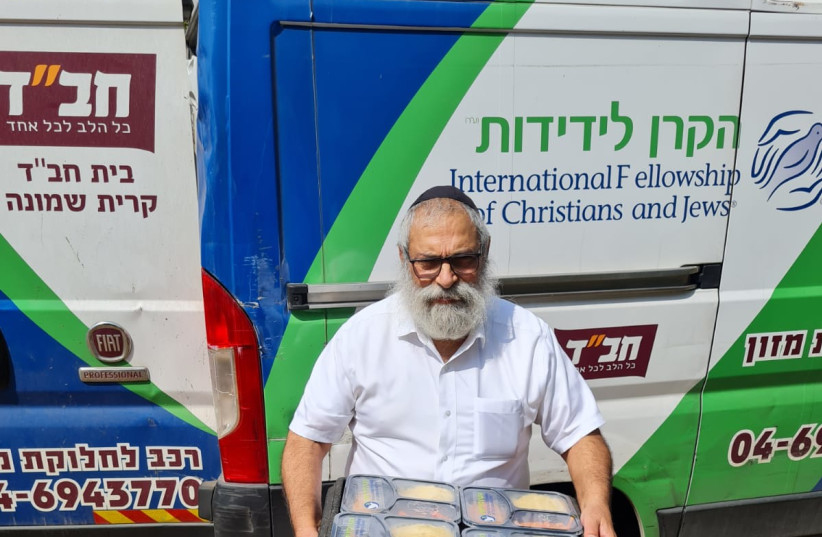In response to the ongoing war and mounting challenges faced by both the Israeli Homefront and the IDF, the International Fellowship of Christians and Jews (IFCJ) has taken swift action by approving a 20 million shekel emergency grant. The funds will be allocated to support affected communities and military needs.
The IFCJ has been actively collaborating with various aid partners, including the IDF Homefront Command, local municipalities, Colel Chabad, community boards, hospitals, Magen David Adom, United Hatzalah, and others, to identify specific areas of need and ensure the proper allocation and distribution of funds.
Aid to affected families
The approved allocations from the emergency grant include the distribution of 400 grants valued at 5,000 shekels for families of IDF personnel injured in combat; 1.5 million shekel to NETEL (Victims of Trauma from Terror Activities) to increase support hotlines; and the transfer of 2 million shekel (matched by the Israel Lottery Commission for a total of 4 million shekel) to go to communities on the Gaza border to address immediate critical needs identified by local welfare and social work teams, including food, medications, transportation, therapy services, and more.
Also included in the grant are the distribution of 1,600 grants of 5,000 shekel each to families evacuated from the southern military zone, the distribution of prepared meals in the southern town of Netivot, and the distribution of 600 'debit cards' (each valued at 600 shekel) to benefit evacuated families.

Support to the IDF
The IFCJ will also position a Mobile Emergency Response Center in the area of the Casualty Identification Center at the Shura Base to provide rest, refreshment, and essential resources to rescue and casualty identification teams, as well as families. Other mobile response units will be positioned in areas with a concentration of security and IDF forces to distribute refreshments.
The grant also includes the purchase of 1,000 bulletproof vests, which are in high demand in recent days following the draft of 300,000 reservists into active duty; the installation of portable shelters along the northern border and in the Galilee region based on the needs assessed by the IDF Homefront Command; and the distribution of food and prepared meal trays to reservists serving on the northern border.
A lot of money to a lot of people
Other allocations of the grants funds include the distribution of games and toys to families of children with special needs in Netivot and the relocation of evacuated Ukrainian children from Ashkelon to Kfar Chabad.
These allocations represent only a portion of the ongoing projects, with the Fellowship continuously updating its aid efforts based on communication with partners in the field. The IFCJ is committed to managing and funding the distribution of various resources, including food, clothing, equipment for soldiers, first aid kits for Magen David Adom and United Hatzalah, and games for children, while addressing changing needs.
Yael Eckstein, President of IFCJ, stated, "We are living through one of the worst tragedies ever to impact the state of Israel. We have witnessed a horrific attack on innocent children, adults, seniors, who were killed without ever having the chance to defend themselves. This attack has impacted every Israeli and every household, while leaving countless families without a safe home to return to and many without access to basic supplies like food, medication and clothing while being deprived of the most basic right to feel safe and secure. Since the outbreak of the war, we have been working to respond in all ways possible."
Eckstein further emphasized the IFCJ's commitment to serving as a central point of emergency response, working in partnership with other relevant agencies in the field. The organization's hope and prayer are that the ongoing war will end swiftly, allowing them to focus on returning people to their homes and rebuilding their lives.
“With our hearts focused on the immeasurable pain suffered by so many people who have lost loved ones or have been injured or missing, our sincerest hope and prayer is that this horrific war will end quickly so that we will be able to refocus our efforts on returning people to their homes and rebuilding new lives,” she said.
